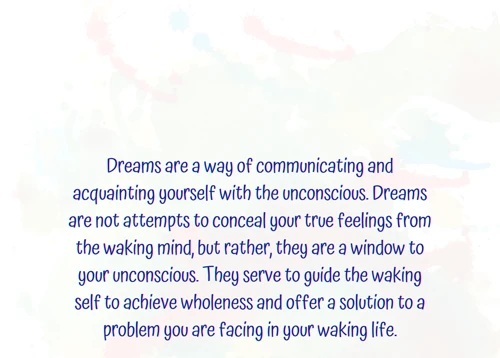Have you ever wondered why we dream? Dreams have long fascinated and perplexed humans throughout history. They are a complex and mysterious phenomenon that can offer insights into our subconscious thoughts and feelings. When it comes to relationships, dreams can serve as a window into our innermost desires, fears, and insecurities. In this article, we will delve into the secrets of dreams and discover how they reveal our hidden thoughts and emotions regarding relationships. From exploring common dream symbols to understanding recurring patterns and interpreting the emotions within our dreams, we will unlock the power of dreams as a tool for self-reflection and understanding. So, get ready to dive into the depths of your unconscious mind as we uncover the fascinating world of dream analysis and its connection to our relationships.
Understanding Dreams
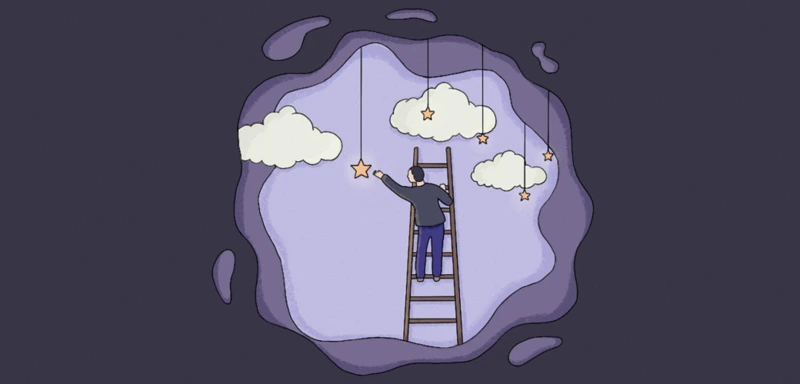
Dreams are enigmatic phenomena that have captivated human curiosity for centuries. Yet, understanding their purpose and significance remains a puzzle. What is the true function of dreams? Theories abound, but one prevailing belief is that dreams serve as a conduit between our conscious and subconscious minds. They offer a unique platform for our subconscious thoughts and emotions to surface, often revealing hidden aspects of our psyche. Linking symbolic elements to personal experiences, dreams provide a window into our deepest desires and fears. They can be a reflection of our waking life, exploring unresolved issues or highlighting insecurities within our relationships. Additionally, dreams may be influenced by past experiences and traumas, offering insight into the impact of past relationships on our current thoughts and feelings. Exploring the realm of dreams can provide profound insights into ourselves and our relationships, unlocking the secrets hidden within our subconscious minds.
The Purpose of Dreams
The Purpose of Dreams:
1. Unconscious Processing: One of the primary purposes of dreams is to facilitate unconscious processing. While we sleep, our brain continues to process and organize information from our waking experiences. Dreams provide an avenue for this processing to occur, allowing us to make sense of our thoughts, emotions, and memories.
2.Symbolic Representation: Dreams often communicate using symbolism and metaphors. They take abstract concepts and translate them into visual and experiential symbols that our subconscious mind can comprehend. These symbols may represent aspects of our relationships, such as trust, intimacy, or betrayal. By analyzing these symbols, we can gain valuable insights into our thoughts and feelings about our relationships.
3. Emotional Release: Dreams can also serve as a means of emotional release. They allow us to experience and process intense emotions in a safe and controlled environment. For example, if we have unresolved issues or lingering emotions related to a past relationship, dreams can provide a space for us to confront and work through these feelings, even if we may not be consciously aware of them.
4. Problem Solving: Dreams have the ability to present us with innovative solutions to problems we may be facing in our relationships. By tapping into our subconscious mind, dreams can provide creative and out-of-the-box ideas or perspectives that may have eluded us while awake. This problem-solving aspect of dreams can help us navigate challenges or conflicts within our relationships.
5. Self-Reflection: Dreams offer an opportunity for self-reflection. They bring to the forefront our deepest desires, fears, and insecurities, allowing us to gain a better understanding of ourselves and our relationships. By analyzing the content and emotions present in our dreams, we can uncover hidden aspects of our psyche and gain insight into areas of personal growth and development.
Understanding the purpose of dreams can help us appreciate their significance in relation to our relationships. They provide a unique platform for our subconscious thoughts and emotions to manifest, offering valuable insights and opportunities for self-reflection. Exploring the purpose of dreams can lead to a deeper understanding of ourselves and our relationships, helping us navigate the complexities of human connection. For further exploration on the topic of dreams and relationships, you can read our article on exploring dreams, infidelity, and trust issues in relationships.
The Role of the Subconscious Mind
The Role of the Subconscious Mind
– The subconscious mind plays a crucial role in shaping our dreams and revealing our innermost thoughts and feelings about relationships.
– Deep beneath our conscious awareness, the subconscious mind stores memories, experiences, and emotions that may not be easily accessible in our waking life.
– While the conscious mind is focused on the present moment and logical reasoning, the subconscious mind operates in a different realm, allowing for the exploration of hidden emotions and desires.
– In the realm of dreams, the subconscious mind takes center stage, expressing itself through vivid imagery, symbolism, and emotions.
– Dreams offer a direct pathway to tap into the rich tapestry of the subconscious, bypassing the filters and judgments of the conscious mind.
– The subconscious mind uses dreams as a means of communication, providing valuable insights into our relationships that we may not consciously recognize.
– By analyzing the symbolism and imagery within our dreams, we can gain a deeper understanding of our subconscious thoughts and feelings, helping to uncover hidden motivations and unresolved issues.
– The subconscious mind acts as a reservoir of knowledge, drawing upon past experiences, traumas, and relationships to shape the content and narrative of our dreams.
– Through the exploration of dreams, we can begin to unravel the intricate web of our subconscious mind, harnessing its power to gain self-awareness and enhance our relationships.
– Ultimately, understanding the role of the subconscious mind in dreaming allows us to unlock the secrets hidden within our own minds, providing a pathway to self-discovery and personal growth in the realm of relationships.
Dream Symbols and their Meanings
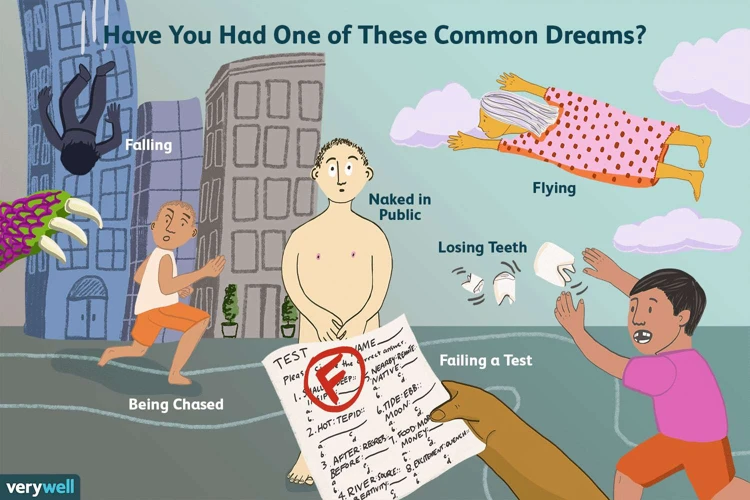
Dreams are a realm filled with rich symbolism, where everyday objects and scenarios may take on profound meanings. Understanding these dream symbols is essential in deciphering the messages from our subconscious mind. Common dream symbols related to relationships can include things like flowers, weddings, or even arguments. These symbols often represent deeper emotions or desires that our subconscious is trying to convey. For example, a dream about a wedding might signify a longing for commitment or a desire for a deeper connection in a romantic relationship. Interpreting dream symbols requires careful consideration of personal experiences and associations. The same symbol can have different meanings for different individuals. By analyzing the context and emotions associated with these symbols, we can begin to unravel the hidden messages embedded within our dreams. So, the next time you find yourself pondering the significance of a dream symbol, remember to dive deeper into its possible meanings to uncover the intricate language of your subconscious mind.
Common Dream Symbols related to Relationships
Common dream symbols related to relationships can vary greatly, but there are a few recurring themes that often emerge. One common symbol is the presence of bridges or connecting pathways, which can represent the desire to establish a connection or bridge a gap in a relationship. Another symbol frequently found in relationship dreams is water, such as oceans, rivers, or lakes. Water symbolizes emotions and can signify the depth of feelings within a relationship. Dreams involving houses or dwellings can indicate a need for security and stability in relationships, while dreaming about keys or locked doors may suggest feelings of being closed off or seeking deeper intimacy. It’s also common to dream about weddings or engagement rings, which can symbolize commitments, unity, and the desire for long-lasting relationships. These dream symbols serve as powerful metaphors for the complexities and dynamics present in our relationships, providing valuable insights into our deepest desires, fears, and aspirations.
Interpreting Dream Symbols
Interpreting dream symbols is a crucial aspect of understanding the messages hidden within our dreams. Dream symbols can range from common objects to abstract concepts, each holding their own unique meanings. To decipher these symbols, it is essential to consider their personal significance and the emotions associated with them. For example, a dream about a snake may symbolize danger or fear, but it could also represent transformation and rebirth in certain cultures. Additionally, the context in which the symbol appears in the dream can provide further insight. For instance, seeing a broken mirror could indicate a fractured sense of self or a need for self-reflection. It is important to approach dream interpretation with an open mind and consider the multiple layers of meaning that symbols can hold. Using introspection and reflection, individuals can begin to unravel the complex web of symbols in their dreams, gaining a deeper understanding of their subconscious thoughts and emotions.
Exploring Relationship Themes in Dreams
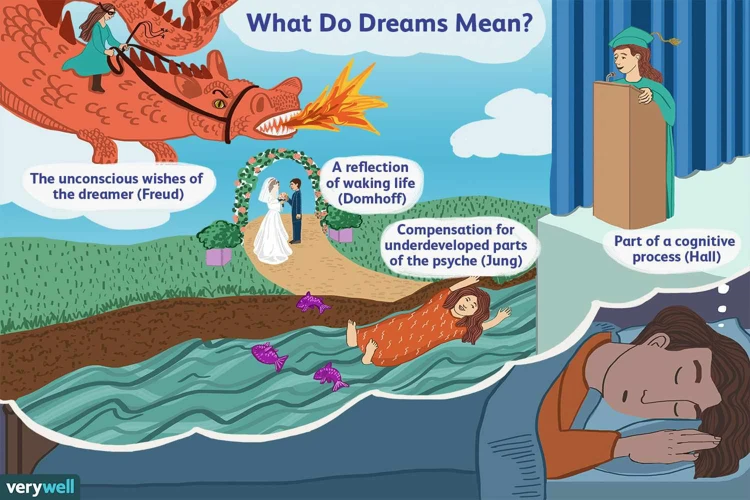
When we delve into the world of dreams, we find that they often provide a rich tapestry of relationship themes that reflect our deepest emotions and connections. Dreams can illuminate various types of relationships, including romantic relationships, familial bonds, and friendships. In our romantic relationships, dreams may depict scenarios of passion, intimacy, or conflict, revealing our desires, anxieties, and unresolved issues. Familial relationships, on the other hand, may manifest in dreams as nostalgic memories, unresolved conflicts, or the desire for closer connections. Dreams about friendships and social bonds can reveal our need for companionship, feelings of loyalty, or fears of betrayal. By exploring these relationship themes in our dreams, we gain a deeper understanding of our emotional landscape and the dynamics that shape our connections with others.
Romantic Relationships
Romantic Relationships: Dreams about romantic relationships are incredibly common and can reveal deep-seated emotions and desires. These dreams often feature scenarios that mimic real-life situations or incorporate symbolic elements that represent different aspects of romantic relationships. It is essential to interpret these dreams in the context of your own experiences and emotions. Here are some common themes and symbols that may appear in dreams about romantic relationships:
1. Falling in Love: Dreams of falling in love can evoke intense emotions and feelings of excitement. They may symbolize a longing for a new romantic connection or a desire for passion and intimacy in your current relationship.
2. Infidelity: Dreams about infidelity can be distressing, but they do not necessarily indicate actual infidelity in real life. Instead, they often reflect feelings of insecurity or a fear of betrayal within the relationship. These dreams can serve as a reminder to address any trust issues or unresolved emotional wounds.
3. Weddings: Dreams of weddings are symbolic of commitment and partnership. They can represent the desire for a deeper commitment in a current relationship or a longing for marriage and stability.
4. Breaking Up: Dreams about breaking up can be unsettling, but they do not necessarily indicate a doomed relationship. Instead, they may point to unresolved conflicts or the need for personal growth and self-reflection within the relationship.
5. Reuniting with an Ex: Dreams about reuniting with an ex-partner may stem from feelings of nostalgia or unresolved emotions from past relationships. These dreams often symbolize the need for closure or the exploration of unfinished emotional business.
6. Intimacy and Sex: Dreams about intimacy and sex can be a reflection of the desire for physical and emotional closeness in a romantic relationship. They may also symbolize a need for deeper emotional connections or a desire to explore your own desires and boundaries.
Remember, the interpretation of dreams about romantic relationships is highly personal. It depends on your unique experiences, emotions, and current circumstances. Reflecting on the emotions, symbols, and themes present in your dreams can provide valuable insights into your desires, fears, and the state of your romantic relationships.
Familial Relationships
Familial relationships hold a significant place in our lives, and dreams can shed light on the dynamics, emotions, and unresolved issues we have with our family members. Dreams involving family often revolve around themes of love, conflict, and the desire for connection. Common dream symbols related to familial relationships may include parents, siblings, grandparents, or extended family members. Each symbol carries its own meanings and interpretations based on personal experiences and the dynamics within the family unit. For example, dreaming of a happy family gathering may represent a sense of belonging and harmony, while dreams involving arguments or tension might indicate unresolved conflicts or unmet emotional needs. It is essential to consider the specific context and emotions portrayed in the dream to interpret its significance accurately. Dreams about familial relationships can serve as a platform for self-reflection, helping us uncover buried emotions, past traumas, or patterns that affect our current interactions with family members. It is important to approach these dreams with an open mind and a willingness to address any underlying issues to cultivate healthier relationships within our families.
Friendships and Social Bonds
Friendships and social bonds hold significant importance in our lives, and they often find their way into our dreams. Such dreams can reveal our subconscious thoughts and emotions about our relationships with friends and acquaintances. These dream scenarios can take various forms and offer unique insights into the dynamics of our social connections.
1. Reconnecting with Old Friends: Dreams about old friends can symbolize a longing for reconnection or a desire to regain lost connections. These dreams may indicate a nostalgia for the past or a need for companionship that has been missed.
2. Betrayal or Conflict: Dreams involving conflicts or betrayals with friends may signify unresolved issues or tensions within these relationships. They might reflect deep-seated fears of losing trust or being let down by those we consider close.
3. Strengthening Bonds: Dreams that revolve around joyful or supportive interactions with friends can symbolize the strength and importance of these relationships in our lives. They may highlight feelings of comfort, acceptance, and camaraderie.
4. Social Anxiety: For individuals who experience social anxiety, dreams about friendships and social gatherings may reflect apprehensions, fears, or feelings of being judged in social situations. These dreams might present an opportunity to explore and address underlying anxieties.
5. Group Activities: Dreams that involve participating in group activities or being part of a social circle might indicate a desire for belonging and acceptance. These dreams can highlight the need for connection and the importance of bonding within a group setting.
6. Friendships in Transition: Dreams about changes in friendships, such as growing apart or drifting away, might represent the evolution of relationships over time. They may reflect changes in interests, priorities, or circumstances that affect the dynamics of these connections.
It is important to remember that the interpretation of these dreams will vary depending on personal experiences, feelings, and individual circumstances. Reflecting on the emotions and narratives within these dreams can provide valuable insights into the nature of our friendships and social bonds, helping us navigate and nurture these relationships in our waking lives.
Why Dreams Reveal Subconscious Thoughts and Feelings
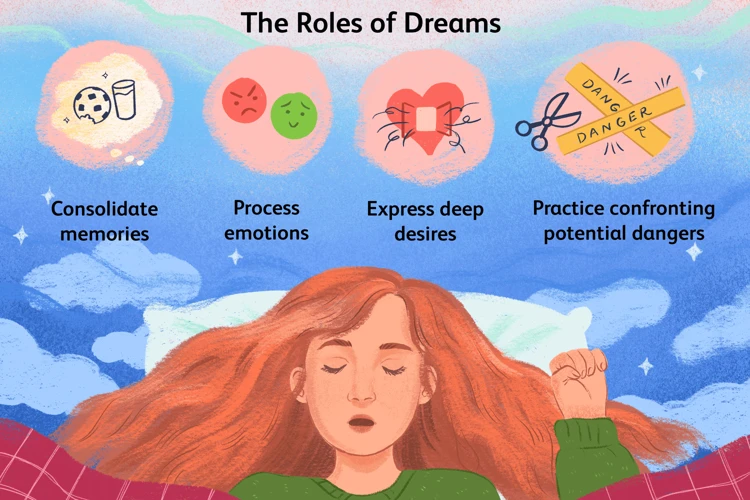
Why Dreams Reveal Subconscious Thoughts and Feelings:
1. Access to the Unconscious Mind: Dreams provide a direct portal into our unconscious mind, which holds a wealth of thoughts, emotions, and memories that are not readily accessible to our conscious awareness. While we may suppress or ignore certain thoughts and feelings in our waking life, they can manifest themselves in our dreams, offering a glimpse into our true selves.
2. Symbolic Language: Dreams often communicate in symbolic language, using metaphors and imagery to convey deeper meanings. The subconscious mind utilizes this symbolic language to represent our thoughts and feelings in a disguised form. By analyzing and interpreting these symbols, we can gain valuable insights into our subconscious thoughts and emotions about relationships.
3. Processing and Integration: Dreams play a crucial role in processing and integrating our daily experiences. They act as a mental filter, sifting through the events, emotions, and concerns of our waking life, and organizing them into meaningful narratives. By doing so, dreams allow us to make sense of our experiences, including our relationships, and help us to resolve any conflicts or emotional turmoil that may be present.
4. Unconscious Desires and Fears: Our dreams often reveal our deep-seated desires and fears, even ones that we may not consciously acknowledge. Our subconscious mind uses the dream state to present these desires and fears in a non-threatening way, allowing us to explore and confront them safely. Through dreams, we may discover hidden yearnings for intimacy, fears of abandonment, or unaddressed issues within our relationships.
5. Emotional Release: Dreams serve as an avenue for emotional release, providing a safe space for the expression and processing of intense emotions that we may suppress or ignore in our waking life. By allowing these emotions to be expressed in our dreams, we can gain insight into our emotional state and identify any unresolved conflicts or issues that may be impacting our relationships.
Dreams reveal subconscious thoughts and feelings about relationships through the access they provide to the unconscious mind, their symbolic language, the processing and integration of experiences, the revelation of unconscious desires and fears, and the opportunity for emotional release. By exploring and analyzing our dreams, we can gain a deeper understanding of ourselves and our relationships, leading to personal growth and improved emotional well-being.
Interpreting the Emotions in Dreams

Emotions play a vital role in dreams, as they allow us to delve deeper into our subconscious and understand our true feelings. Interpreting the emotions experienced within dreams can provide valuable insight into our relationships. When analyzing dreams, it is important to pay attention to the intensity and context of the emotions felt. For example, feelings of joy, love, and contentment in a dream may indicate satisfaction and fulfillment in a relationship. On the other hand, negative emotions like fear, anger, or sadness can signify unresolved conflicts or unmet needs within a relationship. Additionally, the presence of mixed emotions in a dream may reflect ambivalence or uncertainty about a particular relationship. It is crucial to consider the overall emotions experienced within a dream and how they align with our waking life experiences. Dreams offer a safe space to explore and process our emotions, allowing us to gain a deeper understanding of our relationships and ourselves. By paying close attention to the emotions present in our dreams, we can uncover hidden truths and work towards cultivating healthier and more fulfilling relationships in our waking lives.
Recurring Dreams and Relationship Patterns

Recurring dreams can be particularly insightful when it comes to understanding relationship patterns. These dreams occur repeatedly and often feature similar themes or scenarios. They can offer valuable clues about our subconscious thoughts and emotions related to relationships. One common recurring dream in the context of relationships is the dream of being in a toxic or unhealthy partnership. This dream may reflect deep-seated fears or anxieties about being trapped in a dysfunctional relationship, or it could indicate unresolved issues from past relationships that continue to manifest in our current partnerships. Another recurring dream theme is the dream of infidelity. This dream may stem from feelings of insecurity or a lack of trust in our relationships, or it could signify a desire for more excitement or passion in our romantic lives. Additionally, dreams of separation or break-up are also common recurring dreams. These dreams may point to underlying fears of abandonment or feelings of being trapped in a stagnant relationship. By paying attention to these recurring dream patterns and reflecting on the emotions they evoke, we can gain valuable insights into our relationship behaviors and patterns. It is essential to remember that recurring dreams are not definitive predictions, but rather invitations to explore and reflect on our subconscious thoughts and feelings about relationships. Keeping a dream journal and discussing these dreams with a therapist or loved ones can provide further insight and support in deciphering these recurring relationship patterns.
To summarize, recurring dreams hold significant meaning when it comes to relationship patterns. They can serve as a mirror to our deepest fears, desires, and unresolved issues. By paying attention to these dreams and reflecting on the emotions they elicit, we can gain self-awareness and make positive changes within our relationships.
Lucid Dreaming as a Tool for Self-Reflection

Lucid dreaming, a fascinating phenomenon where dreamers become aware that they are dreaming while still within the dream, offers a unique opportunity for self-reflection and exploration. In a lucid dream, individuals have the ability to consciously navigate and manipulate their dreamscape, opening doors to deeper understanding and insight. By recognizing the dream state, dreamers can actively engage with their subconscious mind and delve into the hidden recesses of their thoughts and emotions. Lucid dreaming can be a powerful tool for self-reflection, allowing individuals to confront fears, resolve conflicts, and gain clarity about their relationships. Within the lucid dream, one can intentionally choose to interact with dream characters or symbols related to relationships, seeking understanding and resolution. Lucid dreaming can also provide a safe space to practice challenging conversational situations, explore different relationship scenarios, or visualize desired outcomes. It can help individuals identify patterns, recurring themes, and underlying emotions that may be influencing their relationships in the waking world. By honing the skill of lucid dreaming and cultivating self-awareness in the dream state, individuals can unlock a wealth of knowledge and tap into their inner wisdom for personal growth and transformation. Whether it’s unraveling the complexities of romantic relationships or navigating familial bonds, lucid dreaming holds immense potential as a tool for self-reflection in the realm of relationships.
Keeping a Dream Journal

Keeping a dream journal is a powerful tool for unlocking the secrets of our subconscious mind. By recording our dreams upon awakening, we create a written record of the imagery, emotions, and symbols that manifest during sleep. This process allows us to strengthen our dream recall abilities and gain deeper insight into our dream patterns and themes. Here are some key steps to effectively keep a dream journal:
1. Choose a journal or notebook: Select a dedicated journal solely for recording your dreams. This physical act of writing can enhance the connection between your conscious and subconscious mind.
2. Keep your journal within reach: Place your dream journal and a pen or pencil near your bed. This will help you capture details as soon as you wake up, before the memory of your dreams fades.
3. Write immediately upon waking: As soon as you wake up, take a few moments to reflect on your dream and jot down any vivid details. Don’t worry about writing in complete sentences or perfect grammar; the goal is to capture the essence of the dream.
4. Include details and emotions: Describe the people, places, objects, and events that occurred in your dream. Pay attention to the emotions you experienced during the dream as well. These details can provide valuable insights into your subconscious thoughts and feelings.
5. Use keywords and symbols: If you’re short on time or can only remember fragments of the dream, use keywords or symbols to represent the main elements. Later, you can expand on these notes to form a more comprehensive understanding of the dream’s meaning.
6. Review and analyze your dreams: Periodically review your dream journal to identify patterns, recurring symbols, and common themes. Consider the connections between your dreams and your waking life. Reflect on how the dreams may relate to your relationships and emotional well-being.
By consistently keeping a dream journal, you can develop a deeper understanding of your subconscious thoughts and feelings. This practice can help you uncover hidden patterns, resolve emotional conflicts, and gain valuable insight into your relationships. Remember, the more you engage with your dreams, the more information and meaning you can extract from them.
Common Dreams about Relationships and their Interpretations
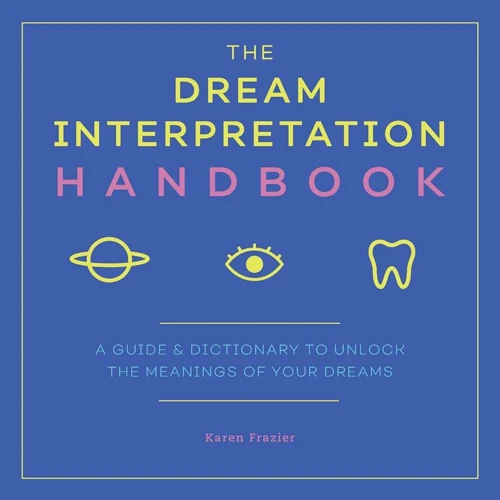
Dreams about relationships are incredibly common and can reveal a wealth of information about our subconscious thoughts and emotions. One common dream is being chased or pursued, often symbolizing a fear of commitment or avoidance of emotional vulnerability. Breaking up or divorce dreams may represent unresolved issues or anxieties about the stability of a current relationship. On the other hand, dreaming about reconciling with an ex can signify a desire for closure or unresolved feelings from the past. Meeting someone new in a dream might indicate a longing for new connections or a desire for change in one’s current relationship status. Interactions with family members can also appear in dreams, unraveling deeper emotions and tensions within familial relationships. Understanding the interpretations of these dreams can provide valuable insight into the intricacies of our relationships and shed light on our subconscious desires, fears, and unresolved emotions.
Being Chased or Pursued
Being chased or pursued is a common theme in dreams and can provide valuable insight into our relationships and emotions. When we dream of being chased, it often represents a sense of vulnerability or fear of confrontation in our relationships. It may indicate that we are avoiding or running away from an issue or person in our waking life. The pursuer in our dream could symbolize a specific individual who we feel threatened by or who represents a certain aspect of ourselves that we are trying to escape from. This dream scenario can also suggest that we are feeling overwhelmed or pressured in our relationships, and we may need to assert ourselves or set boundaries to regain a sense of control. Additionally, being chased in a dream can be a reflection of our own internal struggles or unresolved conflicts within ourselves that need addressing. It is important to pay attention to the emotions felt during the dream, as they provide clues to our subconscious feelings and can guide us towards understanding and resolving any underlying relationship issues.
Breaking Up or Divorce
Breaking up or going through a divorce is a challenging and emotionally turbulent experience, and it’s no wonder that these themes often find their way into our dreams. Dreaming about a breakup or divorce can be a reflection of the deep emotions and fears associated with the end of a relationship. In such dreams, one might experience feelings of sadness, loss, anger, or even relief. These dreams often symbolize the process of letting go and moving on from a significant emotional attachment. The specific details of the dream may vary, but common symbolism associated with this theme includes shattered objects, tears, arguments, or even literal separations. It’s essential to approach these dreams with an open mind, as they can serve as a means of processing and coming to terms with the loss. They can also provide valuable insights into the emotions and unresolved issues that linger after a breakup or divorce. Pay attention to the emotions experienced during these dreams, as they may indicate areas that need healing or further exploration. It’s important to remember that dreaming about a breakup or divorce does not necessarily predict or signify the end of a real-life relationship. Instead, it can serve as a way for our subconscious minds to process and cope with the emotional aftermath of such events. If you find yourself having these types of dreams frequently, consider seeking support from friends, family, or a therapist to navigate the healing process.
Reconciling with an Ex
Reconciling with an ex can be a highly emotional and complicated experience, and dreams can offer a glimpse into our subconscious thoughts and feelings surrounding this sensitive topic. When dreaming of reconciling with an ex-partner, the emotions that arise can range from excitement and hope to confusion and uncertainty. These dreams often reflect our unresolved feelings, desires for closure, or a longing to revisit the past. One common dream scenario is encountering our ex in a familiar setting, such as a favorite restaurant or a shared living space. In these dreams, we may engage in heartfelt conversations, express regret, or seek forgiveness. The dream may also present us with scenarios where we reunite and rekindle the relationship, making us question our current circumstances and contemplate giving the relationship another chance. Alternatively, dreams of reconciling with an ex can also reveal underlying fears or concerns about repeating the same mistakes or falling into old patterns. It is essential to remember that dreams are not always a reflection of reality or a sign to act upon. Instead, they offer an opportunity for self-reflection and exploration of our feelings towards past relationships. Whether these dreams elicit nostalgia, hope, or apprehension, they serve as reminders for us to carefully evaluate our emotions and intentions before considering reconciliation.
Meeting Someone New
When it comes to dreams about meeting someone new, they can be exciting and filled with anticipation. These dreams often signify a desire for a fresh start or a need for new connections in our lives. The person we meet in the dream could be a representation of qualities or characteristics that we are seeking in a partner or a friend. It’s important to pay attention to the emotions and interactions in these dreams, as they can provide valuable insights into our subconscious desires and expectations. Dreams about meeting someone new can also highlight our fears or insecurities when it comes to starting new relationships. We may experience feelings of nervousness or uncertainty, reflecting our apprehension about opening ourselves up to vulnerability. Additionally, the circumstances and settings in these dreams can offer additional clues. For example, if the dream takes place in a familiar location, it may indicate a potential connection with someone already in our lives. On the other hand, dreams set in unfamiliar or fantastical settings could signify a longing for adventure or a desire to explore new territories in our relationships. Dreams about meeting someone new serve as a reminder of our innate need for connection and the potential for growth and discovery in our relationships. They encourage us to embrace the possibilities and be open to new people and experiences that may come our way.
Interactions with Family Members
Interactions with family members in dreams can hold significant meaning and provide insights into the dynamics and emotions within our familial relationships. Dreaming about family members can evoke a wide range of emotions, from love and comfort to tension and conflict. These dreams often depict scenarios where we are engaging with our family members, whether it be through conversations, activities, or specific events. The emotions we experience during these dream interactions can reflect our true feelings and desires in our waking life relationships.
For example, dreaming about a pleasant and harmonious interaction with a family member may signify a strong bond and positive connection in our real-life relationship. It may indicate feelings of love, support, and security within the family unit. On the other hand, dreams depicting conflicts or tension with family members may suggest underlying unresolved issues or strained relationships. These dreams can serve as a mirror to our subconscious, allowing us to confront and address the conflicts or emotions we may be avoiding.
It’s essential to pay attention to the specific dynamics and emotions present in these dreams. Are there unresolved conflicts or unresolved feelings towards certain family members? Are there recurring patterns or themes that arise in these dream interactions? Understanding these dreams can help us gain insight into the complexities of our familial relationships and provide opportunities for healing, growth, or open communication.
Additionally, it’s important to note that the interpretation of these dreams can vary greatly depending on our personal experiences, cultural influences, and individual relationships with family members. What may hold significance for one person may have a different meaning for another.
Dreams involving interactions with family members offer a fascinating glimpse into the dynamics and emotions present in our familial relationships. These dreams can reveal hidden desires, unresolved conflicts, and provide opportunities for self-reflection and growth. By paying attention to the specific dynamics and emotions depicted in these dreams, we can gain a deeper understanding of ourselves and our relationships with our family members.
Understanding Nightmares and Relationship Anxiety
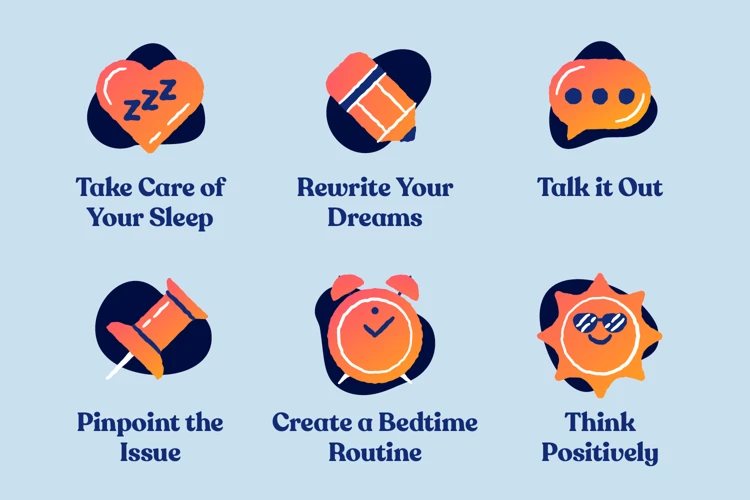
Nightmares are intense and distressing dreams that can leave us feeling unsettled and anxious upon waking. When it comes to relationships, nightmares can be a manifestation of deep-seated fears and anxieties that we may have about our romantic partnerships, friendships, or familial connections. They often reflect relationship-related stressors, unresolved conflicts, or underlying insecurities. One common theme in relationship nightmares is infidelity. These dreams can stem from trust issues or fears of betrayal within a relationship. They may depict scenarios where one partner is unfaithful or where there is a suspicion of infidelity, leaving the dreamer feeling betrayed and insecure. Nightmares about breakups or divorce are also prevalent, symbolizing fears of abandonment or the end of a cherished relationship. These dreams can be particularly distressing, as they tap into our deepest emotional attachments and reflect our fears of losing someone we love. Another theme is reconciling with an ex, which might indicate unresolved feelings or the need for closure in past relationships. Meeting someone new in a dream can evoke a range of emotions, from excitement to anxiety, as it highlights our desires for new connections or the uncertainty that comes with embarking on a new relationship. Dreams involving interactions with family members can be reflective of the dynamics and complexities present in our familial relationships. They can reveal underlying tensions, unresolved conflicts, or the need for validation and acceptance from our loved ones. Nightmares related to relationships and anxieties within them provide valuable insights into our subconscious fears, insecurities, and unresolved issues. By acknowledging and addressing these fears, we can embark on a journey of self-discovery and personal growth, ultimately working towards healthier and more fulfilling relationships.
Exploring the Connection between Dreams and Real-Life Relationships
The connection between dreams and real-life relationships is a fascinating and complex topic. Dreams have the ability to bring forth unresolved issues, emotional needs, and deep-seated insecurities that may impact our relationships. By examining the themes and emotions present in our dreams, we can gain valuable insights into our thoughts and feelings towards our partners, family members, and friends. It is through this exploration that we can identify any unresolved issues that may be affecting our relationships, such as trust issues or communication barriers. Dreams can serve as a mirror that reflects our emotional needs, helping us recognize what we truly desire from our relationships. They can also highlight any insecurities or fears that may be holding us back from fully engaging in healthy and fulfilling connections. By delving into the intricate interplay between our dreams and real-life relationships, we can embark on a journey of self-discovery and personal growth.
Identifying Unresolved Issues
Identifying unresolved issues within our dreams can offer valuable insights into our relationships. Dreams have a way of bringing to the surface unresolved conflicts or lingering emotions that we may not even be aware of in our waking life. In the context of relationships, dreams can serve as a platform for us to confront and address these unresolved issues. They may manifest as recurring dream themes or symbols, such as arguments, betrayal, or feelings of abandonment. By paying attention to these patterns and symbols, we can begin to unravel the underlying emotions and experiences that need to be addressed. For example, a dream about being cheated on could indicate a deep-seated fear of infidelity or trust issues that need to be explored. By identifying these unresolved issues within our dreams, we can take steps towards bringing resolution and healing to our relationships in our waking life. It’s important to approach these dreams with an open mind and a willingness to delve deeper into our emotions, as they can provide valuable insights into the areas that require attention and growth.
Recognizing Emotional Needs
Recognizing emotional needs is a crucial aspect when exploring the connection between dreams and real-life relationships. Dreams often serve as a mirror, reflecting our deep-seated emotional desires and longings. They have the ability to bring to the surface unfulfilled emotional needs that we may not be consciously aware of. In our dreams, we may find ourselves longing for love, affection, validation, or understanding. These dreams can indicate that we are craving these emotional needs in our waking life as well. For example, dreaming of being hugged or comforted may signify a need for emotional support or intimacy in our relationships. Conversely, dreams that depict emotional neglect or rejection can indicate that we may be feeling unheard or undervalued in our relationships. By paying attention and interpreting these emotional needs in our dreams, we can gain valuable insights into what is lacking in our current relationships and take steps towards fulfilling those needs in our waking life. This awareness can lead to healthier, more fulfilling relationships where our emotional needs are acknowledged and met.
Highlighting Insecurities or Fears
Dreams have the remarkable ability to serve as a spotlight on our deepest insecurities and fears within relationships. These insecurities and fears can manifest in various ways, taking on symbolic forms in the dream world. For example, dreaming about being cheated on or experiencing feelings of jealousy may indicate underlying insecurities about trust within a romantic relationship. These dreams can shine a light on our emotional vulnerabilities, allowing us to confront and address them in our waking lives. Dreams can also reveal fears of abandonment or rejection, often stemming from past experiences or unresolved traumas. In these dreams, we may find ourselves feeling neglected, ignored, or even replaced by someone else. Such dreams serve as a reminder to examine our fears and work on building trust and self-confidence within ourselves. Other common fears that may surface in dreams include the fear of intimacy, fear of commitment, or fear of being vulnerable. These dreams can encourage us to explore and understand the root causes behind these fears, helping us to create more fulfilling and secure relationships. By highlighting insecurities and fears, dreams can guide us towards personal growth and empower us to address these issues head-on in order to foster healthier and more satisfying relationships.
Conclusion
In conclusion, dreams offer a fascinating glimpse into our subconscious thoughts and emotions about relationships. Through careful analysis, interpretation, and self-reflection, we can gain valuable insights into our innermost desires, fears, and insecurities. By understanding the symbolism and themes within our dreams, we can uncover hidden patterns and recurring issues that may be impacting our relationships. Keeping a dream journal can be a powerful tool for recording and analyzing our dreams, allowing us to identify unresolved issues, recognize emotional needs, and confront insecurities or fears. Furthermore, the exploration of lucid dreaming and its application as a tool for self-reflection can enhance our understanding of our relationship dynamics. By examining the emotions present in our dreams, we can gain a deeper understanding of our own feelings and how they relate to our relationships. Nightmares and relationship anxiety within dreams can serve as signals for potential unresolved issues within our waking life. By identifying these issues, we can take steps towards addressing and resolving them, leading to healthier and more fulfilling relationships. Ultimately, by harnessing the power of dreams and delving into their meanings, we can unlock the secrets of our subconscious and cultivate a greater understanding of ourselves and our relationships.
Frequently Asked Questions
What is the purpose of dreaming?
The purpose of dreaming is still a topic of debate among experts. However, many believe that dreaming serves as a way for our brains to process and organize information, emotions, and experiences from our daily lives.
Can dreams really reveal our subconscious thoughts and feelings?
Yes, dreams have been studied as a means to gain insight into our subconscious. As we sleep, our subconscious mind takes over, allowing suppressed emotions, desires, and fears to come to the surface through dream symbolism and imagery.
How can I interpret the symbols in my dreams?
Interpreting dream symbols can be a subjective process, as symbols can hold different meanings for different people. One approach is to examine the context and emotions associated with the symbol, as well as personal experiences and cultural influences that may shape its significance.
Do recurring dreams have any special meaning?
Recurring dreams often indicate unresolved issues or patterns in our lives. They can signify that there are recurring themes or emotions that we need to address and understand in order to achieve personal growth and healing.
What is lucid dreaming, and how does it relate to relationships?
Lucid dreaming is the act of becoming aware that you are dreaming while still in the dream state. This heightened state of consciousness can provide an opportunity to explore and confront relationship dynamics and emotions within the dream, offering valuable insights into ourselves and our relationships.
How can keeping a dream journal be helpful?
A dream journal is a tool for recording and analyzing your dreams. By writing down your dreams shortly after waking up, you can capture the details, emotions, and symbols present in the dream. This allows for greater self-reflection and the identification of patterns or recurring themes.
What are some common dreams about relationships?
Common dreams about relationships include being chased or pursued, breaking up or divorcing, reconciling with an ex, meeting someone new, and interactions with family members. Each dream carries unique symbolism and can indicate certain emotions or desires related to our relationships.
Can nightmares be related to relationship anxiety?
Yes, nightmares can often be a manifestation of relationship anxiety or unresolved fears and insecurities within our relationships. They may highlight areas where we feel vulnerable or uncertain and can be an invitation to explore and address these concerns in our waking life.
How can dreams help us identify unresolved issues?
Our dreams can bring unresolved issues to the forefront by magnifying emotions and recreating scenarios that resonate with our waking life experiences. By paying attention to these recurring themes or unresolved conflicts, we can gain valuable insight into what needs healing or attention in our relationships.
What are some ways dreams can highlight insecurities or fears?
Dreams may reveal our insecurities or fears by presenting scenarios that tap into our deepest anxieties. They can reflect feelings of inadequacy, fear of rejection, or concerns about trust. Identifying these insecurities can empower us to address and overcome them in our waking life.

